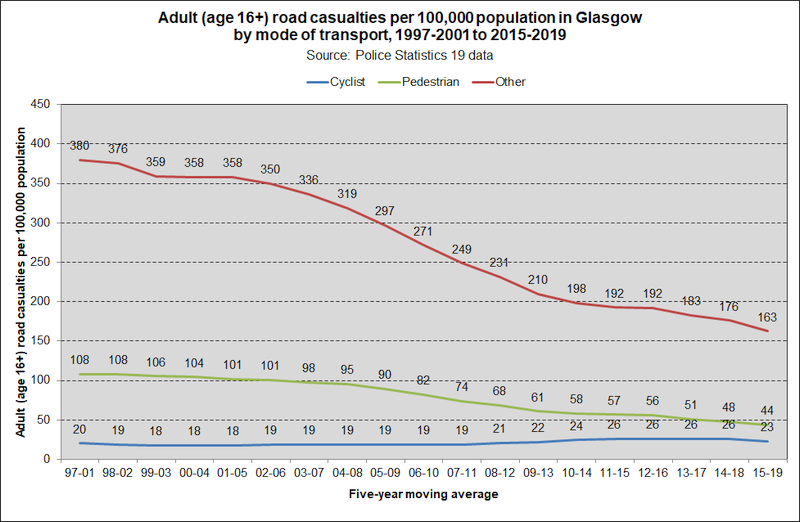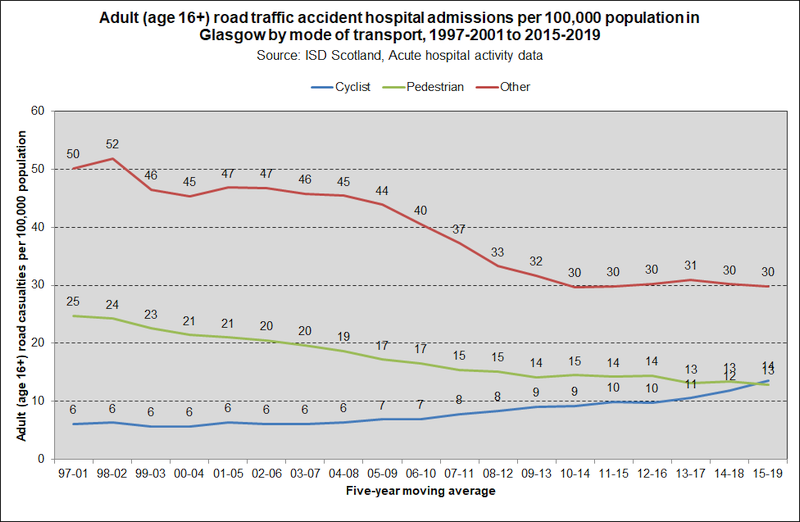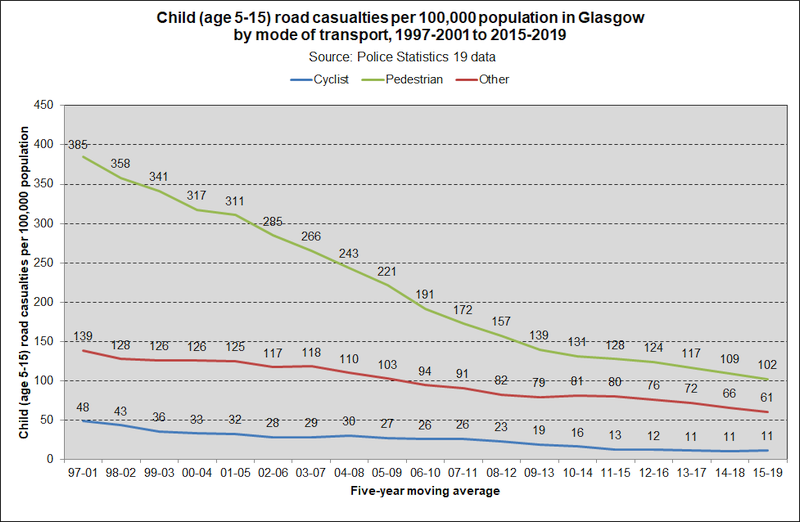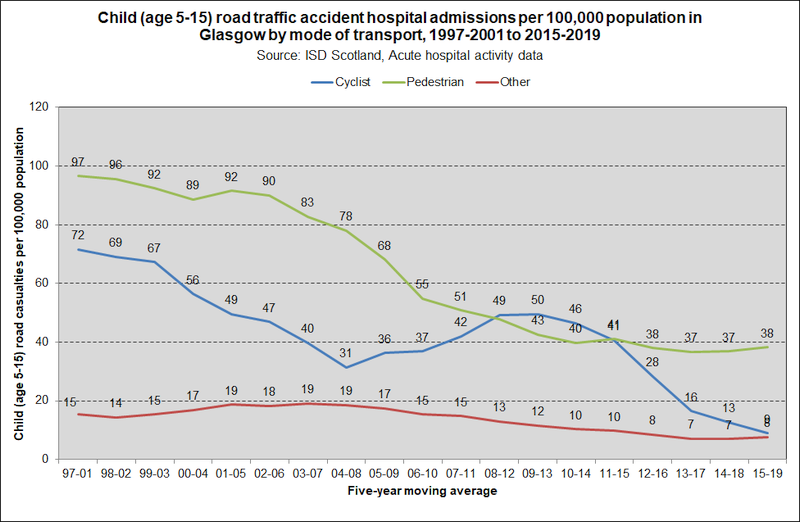Cyclists and pedestrians
Adult cyclist and pedestrian road casualties in Glasgow
The chart above shows a decrease in the adult pedestrian road-casualty rate between 1997-2001 and 2015-2019 in Glasgow, and a slight increase in the adult cyclist-casualty rate until 2014-2018, which has decreased slightly in the most recent time period. The number of casualties for other types of road users has decreased approximately 57% since 1997-2001.
The casualty rates recorded by the police (via Stats 19) are considerably higher than the rate of hospital admissions (shown below). This reflects the fact that road-accident hospitalisations represent a subset of all road accident casualties.
Adult cyclist and pedestrian road traffic accident hospital admissions in Glasgow
The trends in adult hospital admissions as a result of road-traffic accidents, although lower, are similar to the adult casualty trends recorded from police statistics shown above. It is notable, though, that the rate of cyclists being admitted to hospital has risen in recent years (and is now slightly greater than that for pedestrians) despite decreases for pedestrians and other road users.
More information on numbers of cyclists can be found in the cycling section of the website.
Child (age 5-15) cyclist and pedestrian road casualties in Glasgow
As expected, most child traffic-accident casualties are pedestrians, although the rate of child pedestrian casualties has decreased dramatically since 1997-2001. Child casualty rates have decreased for cyclists and other forms of road use as well.
The casualty rates recorded by the police (via Stats 19) are higher than the rate of hospital admissions (shown below) for road-traffic accidents. This reflects the fact that road-accident casualties admitted to hospital represent a subset of all road-accident casualties.
Child (age 5-15) cyclist and pedestrian road-traffic accident hospital admissions in Glasgow
The rate of child pedestrians being admitted to hospital due to a road-traffic accident decreased sharply from 1997-2001 to 2012-2016, and has remained at roughly the same level. The rate of child cyclists being hospitalised decreased until 2004-08 when it, notably, began to increase again. The rate has since declined and has remained lower than that of child pedestrians since 2011-2015. These trends may reflect a change in the number of child cyclists, although many other factors from hospital recording practices to changes in road infrastructure may, potentially, be relevant.
More information on numbers of cyclists can be found in the cycling section of the website.
Notes
The figures shown are based on two sources:
Stats 19 statistical returns: made by police forces, which cover all accidents in which a vehicle is involved that occur on roads (including footways) and result in personal injury, if they become known to the police. There could be many non-fatal injury accidents which are not reported by the public to the police, and are therefore not counted in these statistics. Further statistics on Stats 19-based road-traffic accidents and casualties can be accessed from Transport Scotland publications.
Hospital admission data: These statistics are derived from data collected on discharges from non-obstetric and non-psychiatric acute hospitals (SMR01) in Scotland. The data are based on year of discharge. Relevant hospital episodes have been identified by admission type (emergency hospital admission: SMR01 admission type code 32 - Patient injury - road traffic accident) and by diagnosis (Pedestrian injured in transport accident (V01-V09), Pedal cyclist injured in transport accident (V10-V19), Motorcycle rider injured in transport accident (V20-V29), Car occupant injured in transport accident (V40-V49), Other (any other diagnosis codes recorded)).
Related publication:
In February 2020, the Glasgow Centre for Population Health and Cycling Scotland jointly published Cycling in Scotland: a review of cycling casualties, near misses and under-reporting. This report combines analysis of reported cycling casualties in Scotland over a 23-year period from 1995-2018 alongside a literature review of under-reporting and near misses. The main findings were: the rate of serious injuries and fatalities in Scotland increased by 18% between 2004-2018; the majority (84%) of cycling casualties involved a collision with a car; one-in-ten cycling casualties were victims of hit-and-run incidents, and pedestrian injuries caused by a collision with a cyclist were rare.




